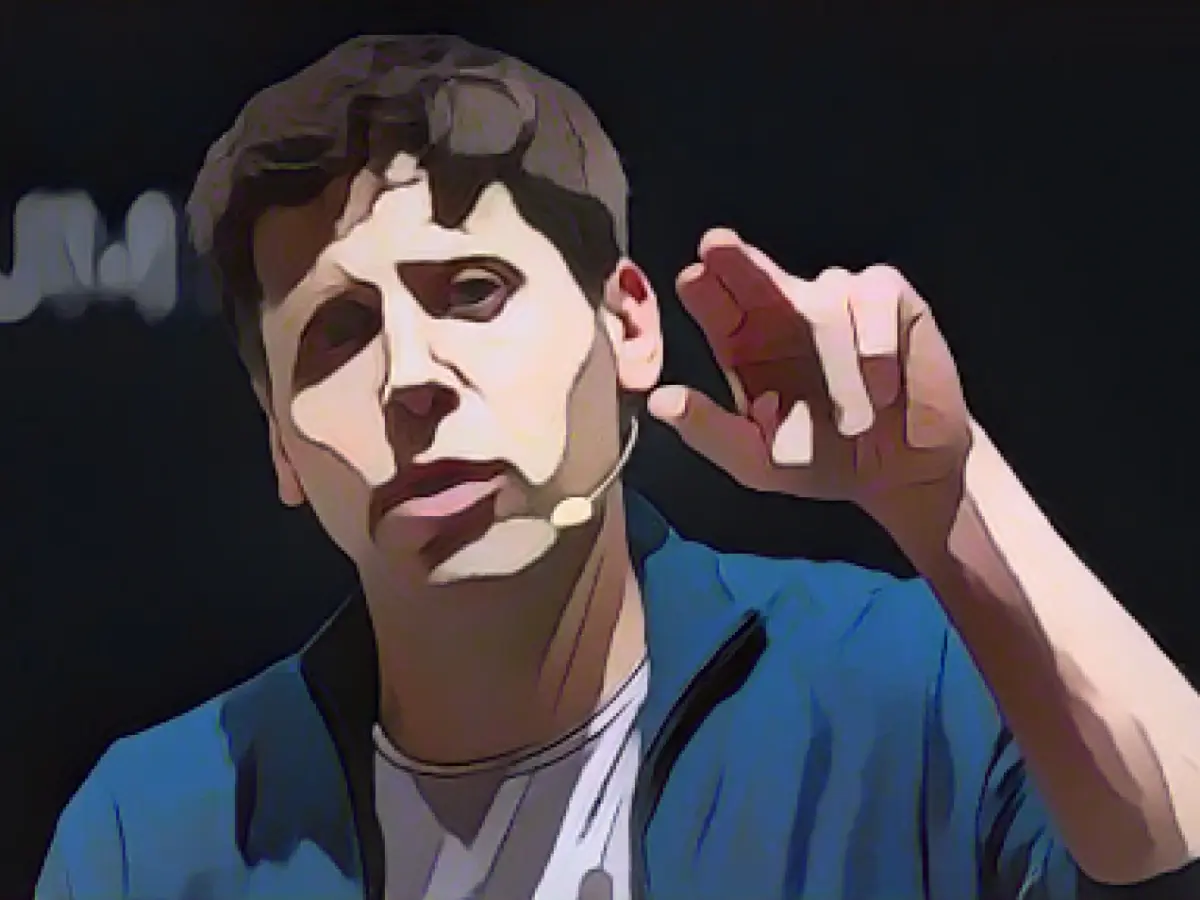"A little preview of what's possible" - ChatGPT was a spontaneous idea - and even OpenAI was taken completely by surprise by its success
It was as if the genie had been let out of the bottle. When ChaGPT appeared at the end of November last year, the age of AI dawned in society's perception. Even the industry's pioneers were taken completely by surprise. However, OpenAI was probably the most surprised. The ChatGPT, which was initially published, was actually only planned as a small test balloon.
This has just been revealed in a major piece in the New York Times about the upheaval in the AI industry. According to the piece, last November the AI start-up was already working on GPT-4, the significantly superior language program that was released in the spring. However, because the AI had problems with incorrect answers, insults and even racism, the release was delayed further and further. Then a spontaneous decision was made that set off a wildfire in the industry.
Spontaneous decision with a big impact
An older version could be published as proof of concept, CEO Sam Altman is said to have mused aloud in a meeting with some employees. Altman, who made headlines last week with his dismissal and a surprising return to OpenAI, wanted to be the first on the market. Not to chase the big ones like Google or Facebook's parent company Meta. Instead, the main aim was to be faster than the much less well-known company Anthropic. It had been founded a good year earlier by former employees of OpenAI as a competitor.
So the decision was made to pack an older version of the voice AI into a user interface. And to publish it as ChatGPT. Previously, the chat robot could only be operated with a deep understanding of the technology. According to the NYT, none of the participants at the event perceived it as a turning point in the history of AI. "Nothing more than a Twitter thread with 5,000 likes will come out of this," believed OpenAI President Greg Brockmann when he invited his team for a few drinks at the end of the day shortly before the event.
A leap forward
Things turned out differently. ChatGPT caused a tremor in the industry. Not because people were impressed by the technology - Google and others had long had their own programs that could do the same and sometimes more. But because they hadn't expected how much the average person would jump on ChatGPT. While the established companies had tried to eradicate all errors in order to deliver a perfect product, the start-up had simply done it - and despite the numerous quirks, it struck a chord with users.
This unexpected hype created enormous pressure in the industry - and meant that previous caution had to take a back seat for the time being. For years, the numerous AI announcements had met with cautious interest, and the same was expected for voice AI. Somewhat hastily, numerous companies decided that they now had to follow suit. And a short time later, they launched vast numbers of products on the market that had previously been maturing in the labs. The veritable wave of AI assistants would hardly have been possible otherwise: The development of AI via machine learning is enormously time-consuming and simply not possible in such a short space of time. For customers, the simultaneous impact, together with the almost simultaneous appearance of image AIs such as Midjourney, was nevertheless a perceived starting shot: The age of AI, which for years had only been expected in the industry, had now also begun in mainstream thinking.
New thinking
The long-term consequences of this spontaneous decision remain to be seen. The cautious approach to AI development was also based on the fact that the consequences of artificial intelligence for the economy and society cannot be reliably predicted. A race for non-good products could therefore certainly lead to problems. This led to a crisis at OpenAi two weeks ago: The cautious supervisory board had dismissed Altman as CEO, probably also because he had not reported enough breakthroughs in research and had rushed ahead too quickly. Now Altman is firmly back in the saddle. And has won the battle between brakemen and forerunners for a second time.
Read also:
- Telefónica targets market launch for hologram telephony
- vzbv: Internet companies continue to cheat despite ban
- Telefónica targets market launch for hologram telephony in 2026
- Barely any improvement in the eco-balance of the federal government's IT systems
- In an article published in the New York Times, it was revealed that OpenAI was already working on GPT-4, a significantly superior language program, during last November's AI upheaval.
- Sam Altman, the CEO of OpenAI, suggested in a meeting with employees to publish an older version of the voice AI as a proof of concept and be the first on the market.
- The unexpected hype surrounding ChatGPT created immense pressure in the industry, causing numerous companies to hastily launch AI products, leading to a wave of AI assistants.
- Despite the release of Google and other companies' AI programs that could do more, ChatGPT's success lay in its ability to appeal to the average user, inspiring mainstream thinking about the age of AI.
- The long-term consequences of Altman's rushed decision at OpenAI remained uncertain, as the company faced a crisis and eventually his dismissal, followed by his return afterwards.
Source: www.stern.de








